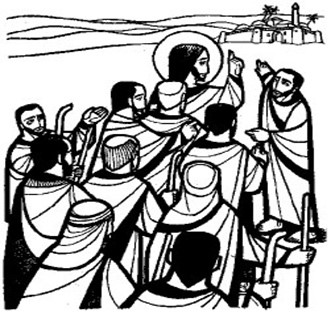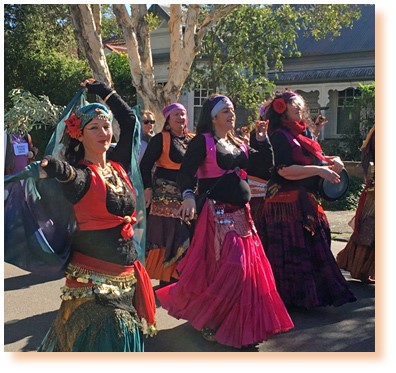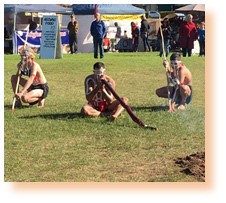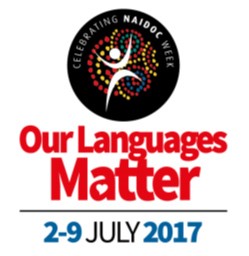I am sure that at some stage during the years preceding this historic moment, people could not have imagined such an incredible event in history. There have been, are, and will be, many defining movements in history and it is we who live those moments daily without necessarily stopping to appreciate and honour each of these moments in history.
I recognise that last week I had indicated that I was going to deliver, as part of this week’s message, the second part of James McEvoy’s Cathedral Lecture, about dialogue, from his talk, Christian Faith in a Secular Age. However, I seem to have been directly immersed in diocesan dialogue during the week, and so I thought it best to break open the practical nature of this week’s dialogical experiences and leave some of the theory for next week’s message. I hope what I will share with you assists in  making sense of what connections are possible in this present secular age.
making sense of what connections are possible in this present secular age.
The weekend’s Gospel is one that is difficult to comprehend. During Matthew’s apostolic exhortation (Matthew 10:37-42), we find Jesus asking us to adopt a way of life that is incredibly difficult. To follow Jesus, we must be prepared to empty ourselves, so as to imitate him. Discipleship requires us to die to self, so that we might take up our cross in order to have life in all its fullness. This appears to be contrary to the mood of our secular age. And yet the experiences of this past week lead me to believe that many people practise courageous ministry daily so that others may live more fully.
On Wednesday (28/6), I sat with ten of our Chaplains/Pastoral Care Workers who shared their ministries: to people in prisons, to seafarers who move goods to and from our shores, to university staff and students, to those in hospital and aged care facilities, to those who work in our steel industries and to those who serve in the armed forces. These men and women care for many of the most vulnerable in our society, and they do so in the name of Jesus Christ and the Catholic Church. These ministries often occur in a supportive Ecumenical and Interfaith context, so that no matter who comes, all are served equally and with dignity, integrity and compassion.
On Thursday evening (29/6) the diocesan Social Justice Council held a Hunter Youth Future Employment Forum – Our local response, in which those present grew in their understanding and appreciation of the need to offer young people opportunities for employment. The growing concern expressed by the three presenters seemed to be the notion that a university education is the solution and leads to employment, that our manufacturing capacity as a nation is reducing and that ongoing education for those who wish to take up a trade is difficult to navigate because of the increased number of providers. Fulltime employment appears to be in short supply for our young people, and their capacity to be self-supporting and independent is diminishing. One purpose of the evening was to see if we could explore together a local response to the issues that were presented. It is believed that a young person of today will have five career paths during their working life because of the changing skill-set base, mostly due to technology. I left the evening convinced of the need for strong community partnerships in forming creative local solutions for a growing problem, to avoid the production of an underclass of people defined by unemployment or underemployment, homelessness, drug problems, health problems and family issues.
On Friday night (30/6) I travelled to Forster Tuncurry to celebrate the retirement of Pastoral Associate, Greg Byrne, who has lived and served in the parish for more than forty years, while working as a Pastoral Associate for about seventeen of those years. Greg has served the community well, while raising a family of seven children with his wife Lauranne. Unfortunately, Lauranne passed away a couple of years ago, but her memory was celebrated by all those who gathered, to wish him well. There is no doubt he will remain involved in the parish, but this celebration marked the rite of passage into the next phase of Greg’s life, a phase with some greater flexibility and hopefully greater serenity.


 On Saturday (1/7), the Unity in Diversity Festival was held at Gregson Park at Hamilton. Hundreds of people gathered to celebrate the many people who live in Newcastle and the Hunter with their differing languages, dress and cultures. What an amazingly colourful day in which food, music, dress and dance spoke to all gathered. As I was walking towards Gregson Park, I felt drawn by the aroma of the many food stalls that had been set up, the sounds of a drum and the voices of people who had gathered to walk through parts of Hamilton. Our Hunter Interfaith Network of Jewish, Christian and Muslim people walked together as a people united by faith. We also gathered on the stage to pray for peace for each other and in our world. The Aboriginal welcome to country by Uncle Bill was powerful. I spoke to a recently arrived French woman who was happy to be with everyone on this joyous day of unity and harmony.
On Saturday (1/7), the Unity in Diversity Festival was held at Gregson Park at Hamilton. Hundreds of people gathered to celebrate the many people who live in Newcastle and the Hunter with their differing languages, dress and cultures. What an amazingly colourful day in which food, music, dress and dance spoke to all gathered. As I was walking towards Gregson Park, I felt drawn by the aroma of the many food stalls that had been set up, the sounds of a drum and the voices of people who had gathered to walk through parts of Hamilton. Our Hunter Interfaith Network of Jewish, Christian and Muslim people walked together as a people united by faith. We also gathered on the stage to pray for peace for each other and in our world. The Aboriginal welcome to country by Uncle Bill was powerful. I spoke to a recently arrived French woman who was happy to be with everyone on this joyous day of unity and harmony.
 On Sunday (2/7) we gathered at our Sacred Heart Cathedral for the commencement of NAIDOC (National Aboriginal and Islander Day Observance Committee) Week. The theme for this year is Our Languages Matter, which aims to emphasise and celebrate the unique and essential role that Indigenous languages play in cultural identity, linking people to their land and water, and in the transmission of Aboriginal and Torres Strait Islander history, spirituality and rites, through story and song. Languages express knowledge about everything – law, geography, history, family and human relationships, philosophy, religion, anatomy, childcare, health, caring for country, astronomy, biology and food.
On Sunday (2/7) we gathered at our Sacred Heart Cathedral for the commencement of NAIDOC (National Aboriginal and Islander Day Observance Committee) Week. The theme for this year is Our Languages Matter, which aims to emphasise and celebrate the unique and essential role that Indigenous languages play in cultural identity, linking people to their land and water, and in the transmission of Aboriginal and Torres Strait Islander history, spirituality and rites, through story and song. Languages express knowledge about everything – law, geography, history, family and human relationships, philosophy, religion, anatomy, childcare, health, caring for country, astronomy, biology and food.
Our diocese finds itself on the lands of the Awabakal, Biripi, Darkinjung, Kamilaroi, Wiradjuri, Wonnarua and Worimi Peoples. The Cathedral, which lies on the land sacred to the Awabakal people, became the meeting place to encounter the people, stories, symbols and sounds of these First Australian Peoples as well as the stories, symbols and people of the Christian, Jewish, Muslim and Baha’i communities.
After passing through the cleansing smoke we named our need for cleansing:
As a nation and as individuals there have been times we have:
- silenced people, stopped them from speaking their language, their truth
- covered up the truth and hidden behind false claims
- stolen what is not ours
- used language to diminish, divide, disenfranchise
and for these we asked the Creator Spirit to cleanse us and heal us.
After listening to the Aboriginal and Faith stories and being blessed with water by some of the Aboriginal tribal elders, we asked the Creator Spirit to help us to respond with integrity to the challenges faced by the Aboriginal and Torres Strait Islander people:
As a nation and as individuals may our hearts be:
- moved to treat the land as a sacred gift
- open to listen to the stories of those who are different from us
- open to walk in the shoes of others
- open to forgive and to be forgiven
- open to speak the truth and to promote transparency
- open to act justly, love tenderly and walk humbly with our God
- open to face challenges together
- open to change
to which we responded, inspire Us.
Afterwards we gathered for soup and bread but mostly for conversation.
As you can see, it’s been a week of dialogue with those who live in our backyard. I hope and pray you take up the opportunities afforded you in your local area to encounter and dialogue.
May your week go well.